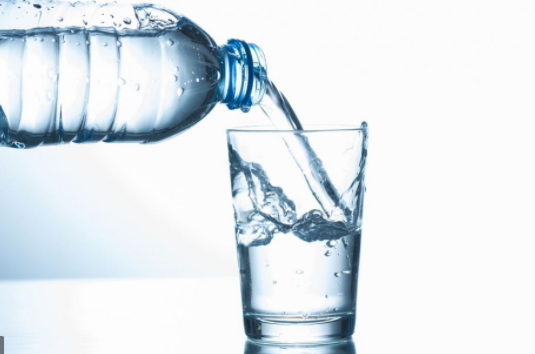Shower Less. Planet Saved.
Did you know that every minute in a shower uses 2.1 gallons of water? This simple task for everyday life uses 19% of the daily water you consume. That percent of your water usage is up to you, but why should I care? Right?

Image from google
February 14, 2022
Think about how much water you use daily. Some people might think that they can use all the water in the world and have no consequences for their actions. Billions of people don’t have enough clean water for their daily lives. This can lead to hunger, sanitation issues, disease, conflicts, and biodiversity loss. Even though, yes, the world is made of 71% water, only 2.5% of that water is freshwater. 1.2% of it is drinkable water, the rest is in ice caps, glaciers, and buried deep underground. Now you can see that the freshwater that is available to us is very low and over consumption affects the whole world’s water supply. Out of the 1.2% of drinkable water, America in total uses 322 billions gallons of water each day.
I interviewed 15 different people in our school- teacher and students- about how many gallons of water they use just for showering each week. First, I asked them how many minutes it usually takes them to take a shower and how many days a week they shower. With that information I looked at the average gallons per minute when showering and it’s 2.1 gallons per minute. After that I calculated ((Average minutes x 2.1) Average days) AM= 14, AD= 7. Which came out to be 203 gallons of water each week, just for showers. Comparing this data to constellation.com, they found that the average American uses 120 gallons per week. This shows that we, at Blaine High School, use approximately 1.7 times more water than the average American. If that doesn’t seem like a lot, I also added up how much water that would be per year. Compared to the average American, which is 6,261 gallons per year (GPY), Blaine High School uses 11,977 GPY. I assume you can identify the drastic difference between the two. There are enormous water usage problems with showers alone and that’s only one out of the vast amount of things we use everyday that require water.
Showers take up 19% of the water used in everyday life, which is also tied with faucet usage of sorts. That percentage of water from showers turns into a trillion gallons of water used per year. A recommended time limit for showers would be 5-10 minutes, this will hydrate your skin really well and ample time to wash up. If you shower more than ten minutes there is a possibility that you can dry out your skin or cause eczema, according to Sara Lindberg from Healthline.
There are many daily things that use water that you already know; drinking, cooking, cleaning, and washing. There is also huge water usage from industries, electricity, and agriculture. The small percentage of freshwater has to be shared with the entire world. There are even some things that you probably don’t know that require water. For example, it takes 2,700 liters to make one T-shirt, which could supply someone with 900 days of drinking water. Another example, it takes 140 liters of water to make one cup of coffee. It also takes around 2,000 gallons of water to make a set of car tires. So even though some things might not seem like they use up a lot of water, sometimes they really do.
Even though there are some things that are out of our control in water usage, there are still some ways you can help the predicament. One way you can help is something I mentioned earlier which is using less water in the showers, by reducing your shower time to five to ten minutes. Taking baths every once in a while can help too. Taking baths and not filling them to the very top can use up less water. Another thing you can do is turn off the faucet while you brush your teeth, or any time that is in between doing a task with water. There is also an interesting way that you might not know to help conserve water. You could water your plants in the morning because it is cool so the water gets time to soak into the soil and get into the plant. This would not happen during the day because the water would mostly evaporate.
I know that this might not seem like a big deal, because of the water you have right now. So, why does it matter? Well, some people believe that WWIII is going to be over water. So even doing one of the things above to conserve water can help a lot. I hope to be a marine biologist someday, so I wanted to bring this topic to everyone’s attention, that didn’t know already. Thank you for reading, and I hope you use this information for personal improvement and to help future generations.


